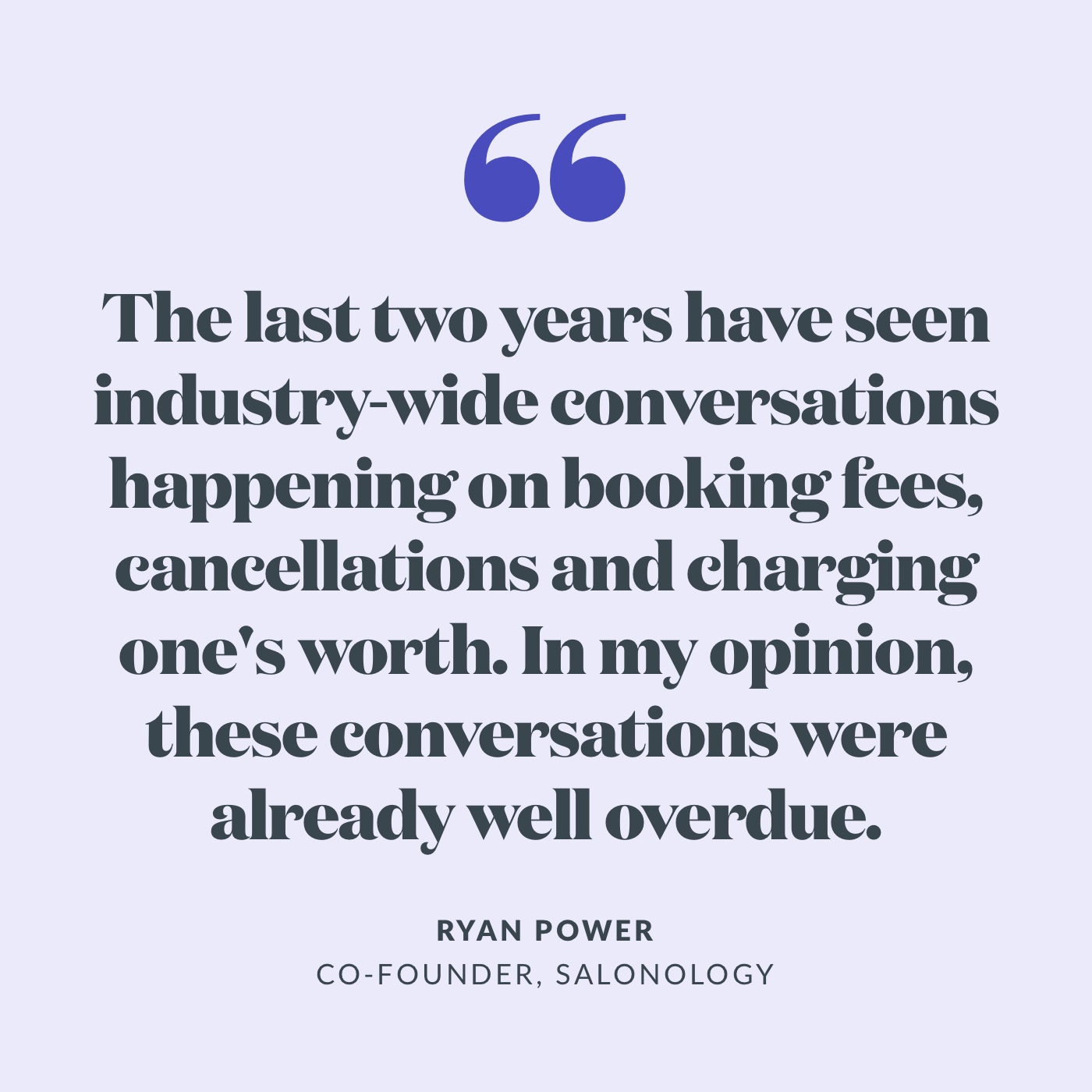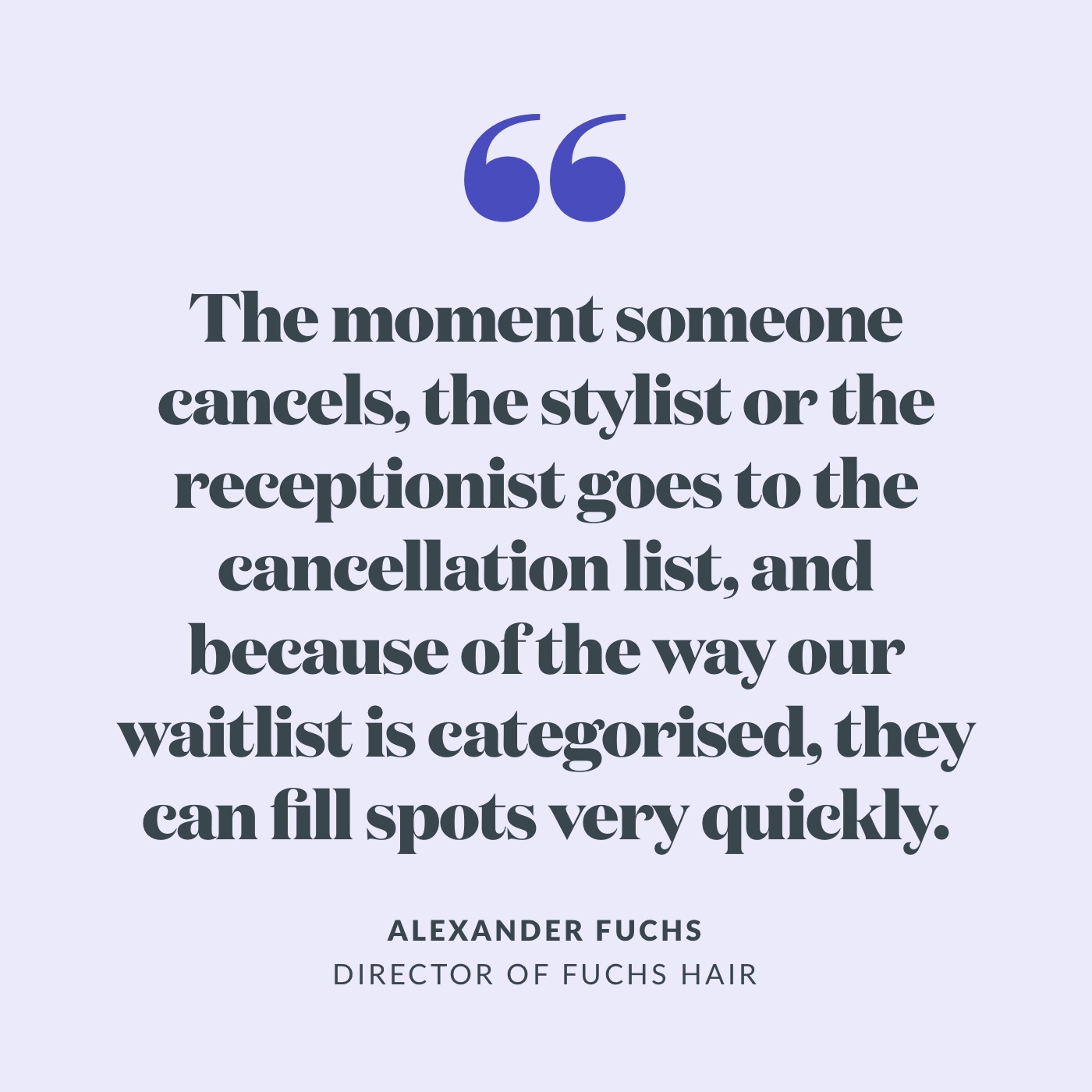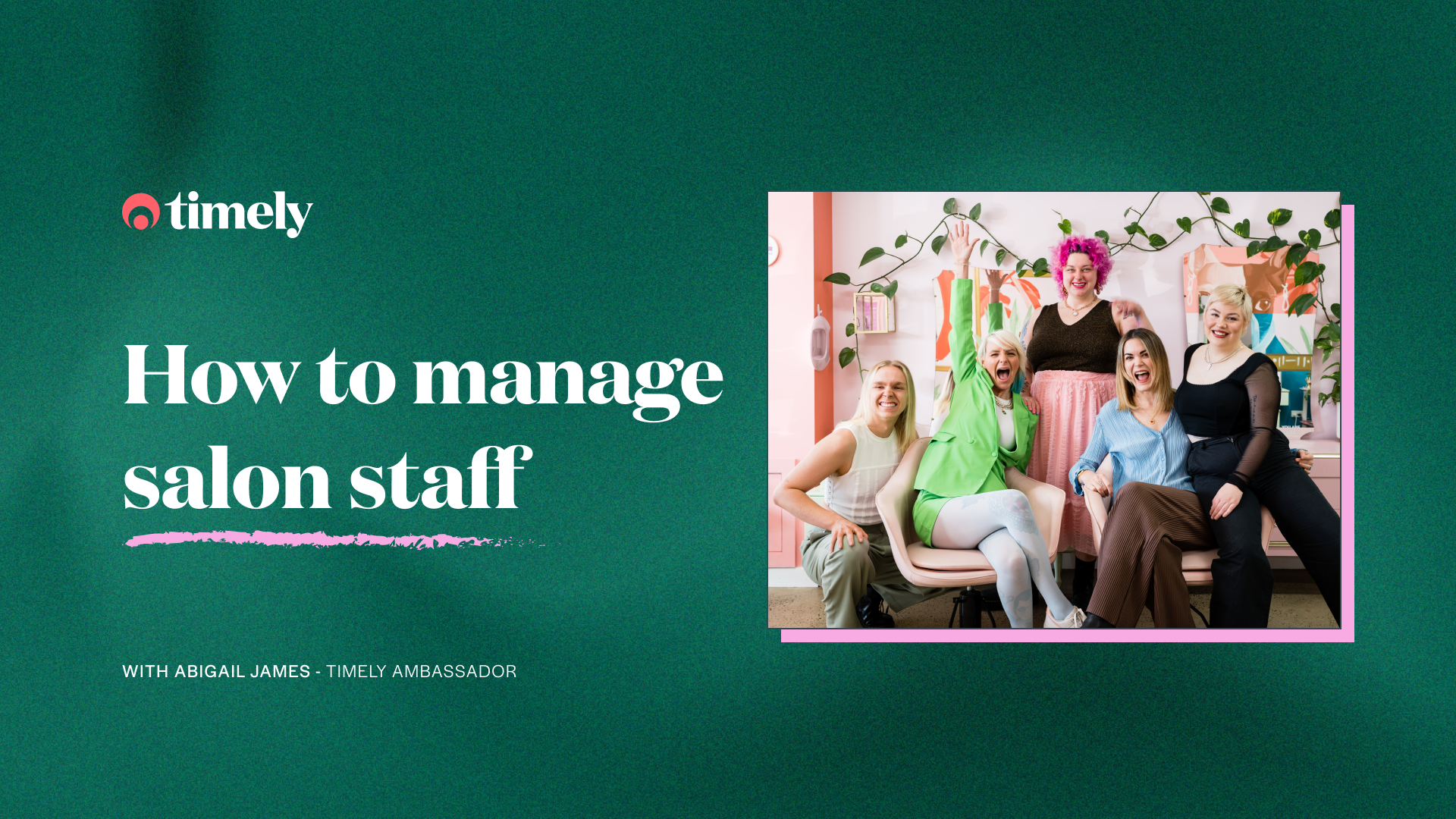Should you take a deposit during these Covid times? We look at both sides of the argument
Last minute Covid cancellations can impact your business big time. In response to the Omicron strain, some salons are cracking down on cancellations to help reduce no-shows as the Covid crisis continues to drag on and on (and on…).
Ever heard of the term ‘long Covid’? Two years into the Covid pandemic, doctors and researchers are only starting to wrap their heads around the ways that Covid can affect patients long term. But truth be told, ‘long Covid’ extends beyond lingering symptoms. New strains of the virus (hello, Omicron) have created new challenges for business owners, particularly in the beauty industry, and it doesn’t look like things will go back to normal anytime soon.
The biggest issue facing salon owners right now is cancellations – and lots of them. Sure, cancellations have always been an issue. But during these Covid times, clients are cancelling appointments at record rates.

The reality is, mass cancellations are hurting small businesses. To see the numbers for yourself, try using Timely’s reporting feature to run a report on no shows and their revenue value over a period of time at your own salon or spa.
If you’re a salon owner, it’s time to start thinking about a contingency plan to help create a stable income and minimise last minute cancellations. But… where to start? Should you take a deposit with every booking? Charge a cancellation fee? We weigh up the options.
The argument for taking a deposit from clients
If you own your own business, the buck stops with you. It’s more important than ever to protect your revenue and sometimes, you need to be your own superhero.
There are steps you can take to safeguard your revenue – and the most effective step is to request a deposit on booking. Businesses who take a deposit reduce their no-show rate by 55 per cent – so we know this option works. The good news? Timely customers can use TimelyPay to set up deposits and automate the booking process.
If you decide to go down this path, you’ll need to double down on the details, create a policy and then inform your clients. Do you want to implement a flat fee deposit, a percentage per service or a combination of both? From there, you’ll need to decide whether you take a deposit for all services or just the top-tier ones. And what would you consider a reasonable time frame for a client to cancel or rebook an appointment (i.e. 8, 24, 48, 72 hours)? How much would you charge per late cancellation?

Case Study #1:
Courtney Evans, Founder of Courtney Evans Beauty, North Adelaide
On record levels of cancellations…
“Cancellations are definitely at an all time high for us, and have been since November 2021, when the border opening resulted in a huge influx of Covid cases in South Australia. We have had weeks where over 50 per cent of clients have had to cancel.”
On introducing deposits…
“We now take a 20 per cent deposit for all bookings via Timely – this helps cover some of our staff wages if the client does not show up. When we updated our policy, we notified our clients via our social media pages, and also on our website and booking link. We increased our cancellation/ rescheduling policy from 24 hours to 48, as we found 24 hours was not enough time to fill appointments and were being left with lots of gaps throughout our days.
“The majority of our clients are more than happy to pay a deposit; we have only had a few disagree. Originally, we were not asking for proof [of a positive test result] and were taking our clients’ word for it. However, we have had a few instances where clients have abused this and now, we ask for proof via a positive test result or that they’re waiting for a result. If the client can provide this, we are happy to transfer their deposit across to the next appointment and waive the cancellation fee.”
On Covid anxiety…
“We have a lot of clients telling us they have not been leaving the house at all to avoid Covid. We are more than happy to cancel or reschedule appointments for clients who are feeling this way, and waive any fees when enough notice is provided. We also remind our clients we follow strict hygiene protocols – we offer masks to clients and sanitise in between every client.”
On managing staff morale…
“[Managing the staff’s motivations levels] has been difficult. We generally offer a discount on appointments that are available in the next 24 hours to help fill spots [and also] have a staff incentive program.”
And here’s why some salons don’t take a deposit
While we know that deposits lead to less no-shows, you might feel uncomfortable implementing a one-size-fits-all, no exceptions policy. And that’s completely fine!
Running your own business is a deeply personal experience. When it comes to making decisions that affect your revenue and clientele, only you know what’s best. It’s time to trust your gut – it’s gotten you this far.
If you don’t want to take a deposit on booking, but are still struggling with cancellations, here are a few other routes you could take:
1. Set up a waitlist
Timely’s waitlist feature is a great way to fill up the calendar and make the most of your day when last-minute cancellations come through.
2. Use tech to your advantage
Send appointment reminders and stay in touch with your clients via SMS and email with Timely. While simple, these reminders are indispensable.
3. Charge a cancellation fee
If you aren’t comfortable taking a deposit, a strict cancellation policy will help cover staff wages for late cancellations.
4. Launch an online store
Offset the financial hit of no-shows by branching out into ecommerce; this will help move products that are already sold in salon.
Case Study #2:
Alexander Fuchs, Director of Fuchs Hair, Sydney
On cancellations…
“In 2020, Sydney went into a four-week full lockdown, which meant we had to shut the business; afterwards, we had a few cancellations due to people uncertain but nothing major.
2021 started off really strong … then we went into a four-month lockdown. Afterwards, we saw a decent number of cancellations, purely because of clients not wanting to come into the salon [due to COVID anxiety], which was okay because we had a massive waiting list.”
“Rebooking is much higher than usual. We are now booked out for months ahead because people are scared they’re going to miss out on an appointment [because of the Sydney-wide waitlists after last lockdown]. “
On deposits…
“We didn’t [change our cancellation policy after Covid]. We have a 24-hour cancellation policy and that’s all we need. In general, with the cancellation fee, if someone cancels late once, we let it slide; [however] we ask for a 50 per cent deposit for their next appointment. If it’s a regular client that has been coming to us for years, it’s okay – these things can happen last minute.
“We have a strong business and haven’t felt the need to introduce deposits yet but we’re always open to it. We do take deposits for our hair extensions business because it means that hours and hours of time is blocked out.”
On the importance of a well organised waitlist…
“We have an extensive cancellation list because we are booked out for weeks and months ahead. Often, when clients book for a few months’ time, they request to be notified if something earlier comes up. Our waiting list is broken down into categories for each stylist that shows which days and times their clients are available, and the amount of notice they need.”
On managing motivation levels…
“All our senior staff are on a salary but then on a commission base; our stylists are motivated to help fill appointments because they don’t want to lose the commission. The moment someone cancels, the stylist or the receptionist goes to the cancellation list, and because of the way our waitlist is categorised, they can fill spots very quickly.”

The takeaway?
We’ve said it once and we’ll say it again: businesses who take a deposit reduce their no-show rate by 55 per cent. If you’re struggling to fill the spots left by last minute cancellations, as Courtney Evans Beauty was, you’re likely to see an improvement from implementing a deposit policy.
On the other hand, as Fuchs Hair has experienced in Sydney, some salons can survive (and thrive) with the help of a strong, well organised waitlist and cancellation policy.
So, there is no right and wrong when it comes to deposits. But if you’re struggling with Covid cancellations, know that you have options – and plenty of them.



